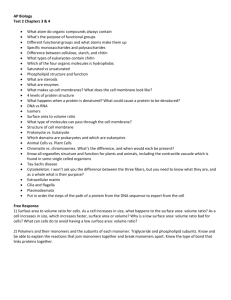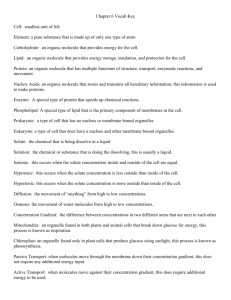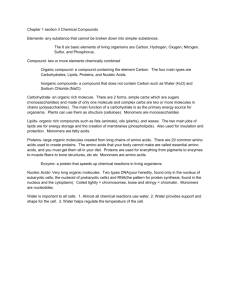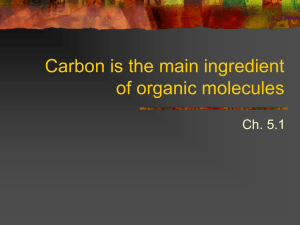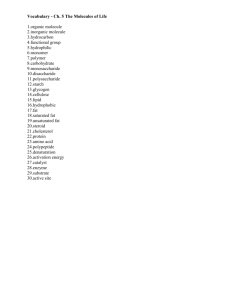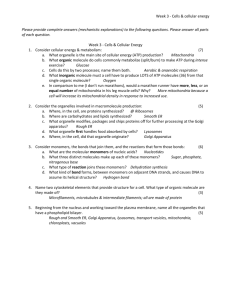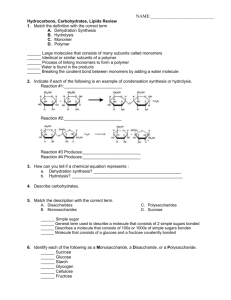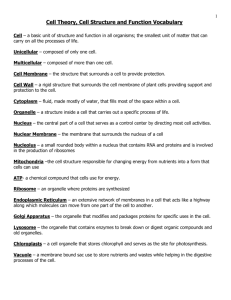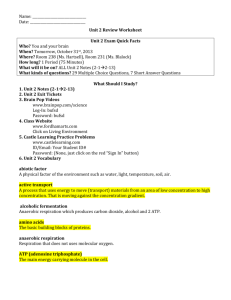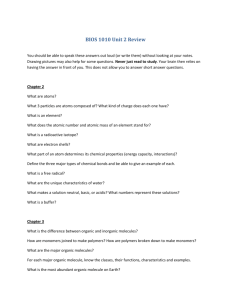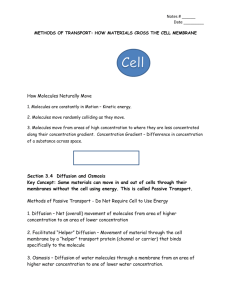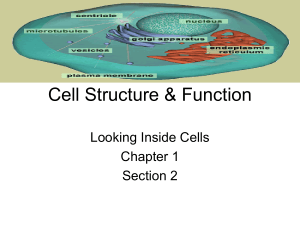Study Guide on Organic Molecules
advertisement
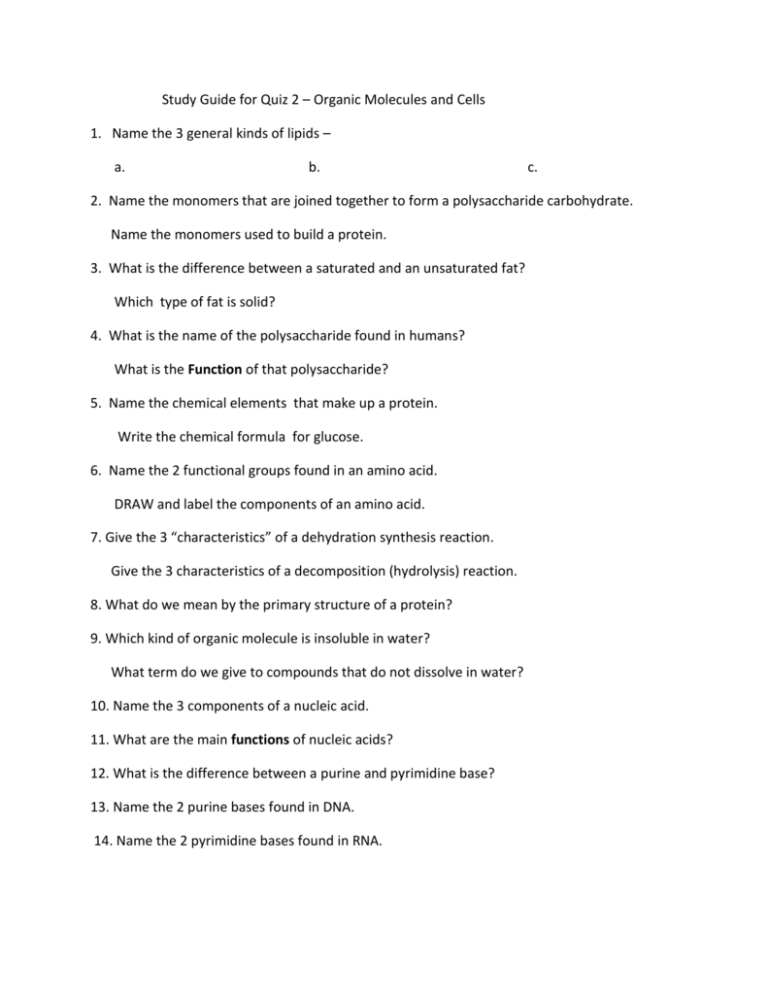
Study Guide for Quiz 2 – Organic Molecules and Cells 1. Name the 3 general kinds of lipids – a. b. c. 2. Name the monomers that are joined together to form a polysaccharide carbohydrate. Name the monomers used to build a protein. 3. What is the difference between a saturated and an unsaturated fat? Which type of fat is solid? 4. What is the name of the polysaccharide found in humans? What is the Function of that polysaccharide? 5. Name the chemical elements that make up a protein. Write the chemical formula for glucose. 6. Name the 2 functional groups found in an amino acid. DRAW and label the components of an amino acid. 7. Give the 3 “characteristics” of a dehydration synthesis reaction. Give the 3 characteristics of a decomposition (hydrolysis) reaction. 8. What do we mean by the primary structure of a protein? 9. Which kind of organic molecule is insoluble in water? What term do we give to compounds that do not dissolve in water? 10. Name the 3 components of a nucleic acid. 11. What are the main functions of nucleic acids? 12. What is the difference between a purine and pyrimidine base? 13. Name the 2 purine bases found in DNA. 14. Name the 2 pyrimidine bases found in RNA. 15. What chemical elements make up a protein? 16. Polysaccharides are large complex molecules (polymers) created by joining smaller molecules (called monomers) together. a. To which group of organic molecules do polysaccharides belong? ______________ b. what is the general name of the small, simple carbohydrate monomers?__________ c. what is the NAME of the PROCESS by which these monomers are joined together? d. explain How these monomers are joined together – what is added? ___________ and what is removed?___________ e. Tell the name of the short-term energy storage polysaccharide found in animals ____________ f. Name the long-term energy storage compound found in animals. ____________ 17. Answer the following questions! a. which cell organelle is known as the “powerhouse” of the cell? b. Which organelle packages materials for transport out of the cell? c. Which organelle synthesizes lipid and denatures/destroys poisons like alcohol? d. Which organelle is involved in digesting of food molecules? e. Which 2 organelles would be involved in the synthesis of proteins? 18. Identify each of the specific types of organic molecules. a. = _______________ b.= _________________ c.=_______________ d. = ______________ 19. Name the kind of chemical reaction shown in B. __________________ What specific kind of molecule is Glucose? ______________ Sucrose? _________________ 20. Give the specific name of the molecule indicated in C by #1 - ___________________ Give the specific name of the molecule in C indicated by #2 - ___________________ 21. Be able to define the following terms (be able to tell the difference between them): Diffusion, Osmosis, Facilitated diffusion, Exocytosis, Phagocytosis, Pinocytosis. 22. What is the difference between a Channel Protein and a Transporter Protein. 23. Be able to describe the structure of the plasma membrane. What components make up the membrane? Which parts are hydrophobic and which are hydrophilic? 24. Be able to describe the 6 different kinds of membrane proteins based on their function. 25. Be able to name what factors increase the rate of diffusion of materials across the cell membrane. 26. Know the characteristics that allow some materials to pass through the lipid bilayer of the plasma membrane and the characteristics (size, charge, etc.) that require materials to pass through the protein portion of the membrane. 27. Know what happens when a cell is placed into a hypotonic, a hypertonic, and an isotonic solution and be able to explain WHY it happens. 28. Name 2 ways that the Nuclear Membrane differs in its STRUCTURE from the plasma membrane. 29. What are the 2 stages of Protein Synthesis. Be able to tell what happens during each stage and where that each stage occurs. 30. What are the 4 stages of Mitosis? 31. During which SPECIFIC stage of the cell cycle does DNA replication (synthesis) occur?
